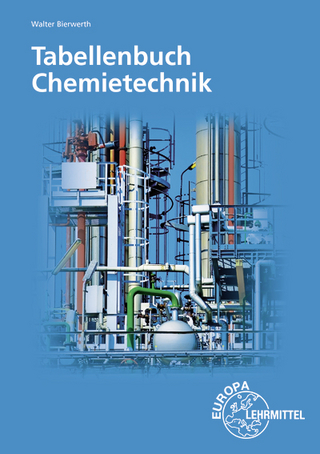High-Energy-Density Fuels for Advanced Propulsion
Wiley-VCH (Verlag)
978-3-527-34669-1 (ISBN)
Professor Ji-Jun Zou is the Department Head of Chemical Technology and Chair Professor at the School of Chemical Engineering and Technology in Tianjin University, China. He received his B.S., M.S. and Ph.D. degrees in Chemical Engineering from Tianjin University in 2000, 2002 and 2005, respectively. He was promoted as full professor of Chemical Engineering in 2013, and became Deputy Director of Key Laboratory of advanced fuel and chemical propellant of Ministry of Education in 2012. Professor Zou has received several awards including Technological Leading Scholar of 10000 Talent project (2017), Changjiang Young Scholar by the Ministry of Education (2016), National Excellent Young Scientist by the National Natural Science Foundation of China (2012), National Excellent Doctoral Dissertation by the Ministry of Education (2008) and Peiyang Distinguished Young Scholar by Tianjin University (2009). He has authored/coauthored more than 150 papers and 30 patents. He is also an Associate Editor of RSC Advances. Professor Xiangwen Zhang is the Director of Key Laboratory of advanced fuel and chemical propellant of Ministry of Education. He received his academic degrees from Tianjin University, and became a full professor in 2006. His research interests include fuel processing technology and reaction engineering. He has authored/coauthored more than 300 papers and 30 patents. Associate Professor Lun Pan received his B.S. and Ph.D. degrees from the School of Chemical Engineering and Technology, Tianjin University, China, in 2009 and 2014, respectively. His research interests mainly focus on the design and synthesis of functional photocatalysts; their related modulation of morphology, facets and surface defects; and their applications in photocatalysis, such as in photocatalytic isomerization for synthesis of advanced fuels. He has published more than 30 papers and 5 patents.
1. Introduction
2. Development History and Basics of Aerospace Fuels
2.1 Introduction
2.2 General Properties and Requirements of Aerospace Fuels
2.3 Development of Aerospace Fuels
2.4 High-Energy-Density Fuels
2.5 Non-Petroleum Fuels
3. Design and Synthesis of High-Density Polycyoalkane Fuels
3.1 Introduction
3.2 Cycloaddition
3.3 Hydrogenation
3.4 Isomerization
3.5 Other Reactions and Procedures
4. Design and Synthesis of High-Density Diamondoid Fuels
4.1 Introduction
4.2 Synthesis of Alkyl-Diamondoids via Acid-Catalyzed Rearrangement
4.3 Synthesis of Alkyl-Diamondoids via IL-Catalyzed Rearrangement
4.4 Synthesis of Alkyl-Diamondoids via Zeolite-Catalyzed Rearrangement
4.5 Alkylation and Other Chemical Synthesis Methods
4.6 Basic Properties of Alkyl-Diamondoids
5. Design and Synthesis of High-Energy Strained Fuels
5.1 Introduction
5.2 Photocatalytic Synthesis of Quadricyclane
5.3 Cyclopropanation
5.4 Spiro and Caged Fuels
6. Design and Synthesis of High-Density Fuels from Biomass
6.1 Introduction
6.2 Carbon-Increasing Reaction Strategies
7. Design and Synthesis of Nanofluid Fuels
7.1 Introduction
7.2 Synthesis and Properties of Nanofluid Fuels
7.3 Methods to Evaluate Stability of Nanofluids
7.4 Approaches to Enhance Stability of Nanofluids
7.5 Typical High-Energy Nanofluid Fuels
7.6 Physical Properties of Nanofluid Fuels
7.7 Formulation and Synthesis of Gelled Fuels
7.8 Rheological Behavior
7.9 Atomization Behavior
7.10 Combustion Behavior
8. Design and Synthesis of Green Hypergolic Liquid Fuels
8.1 Introduction
8.2 Development History of Hypergolic Ionic Liquids
8.3 Physicochemical Properties of Hypergolic Ionic Liquids
8.4 Hypergolic Ionic Liquids
9. Combustion Properties of Fuels and Method to Improve Them
9.1 Introduction
9.2 Typical Equipment Used in Combustion Experiment
9.3 Combustion and Ignition Characters
9.4 Methods to Enhance Ignition and Combustion
9.5 Combustion Mechanism of Nanofluid Fuels
| Erscheinungsdatum | 08.07.2020 |
|---|---|
| Verlagsort | Weinheim |
| Sprache | englisch |
| Maße | 170 x 244 mm |
| Gewicht | 1102 g |
| Themenwelt | Naturwissenschaften ► Chemie ► Technische Chemie |
| Technik ► Elektrotechnik / Energietechnik | |
| Schlagworte | catalysis • Chemie • Chemistry • Energie • Energy • Erneuerbare Energien • Katalyse • Petrochemie • Petrochemie / Brennstoffindustrie • Petrochemistry / Fuel • renewable energy • Treibstoff |
| ISBN-10 | 3-527-34669-4 / 3527346694 |
| ISBN-13 | 978-3-527-34669-1 / 9783527346691 |
| Zustand | Neuware |
| Informationen gemäß Produktsicherheitsverordnung (GPSR) | |
| Haben Sie eine Frage zum Produkt? |
aus dem Bereich




